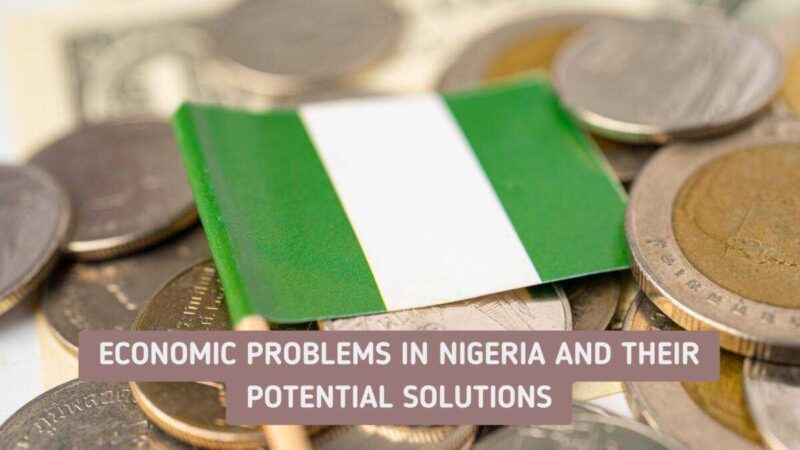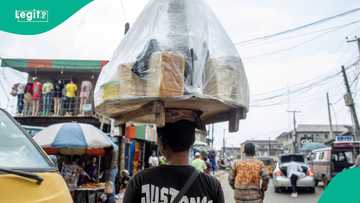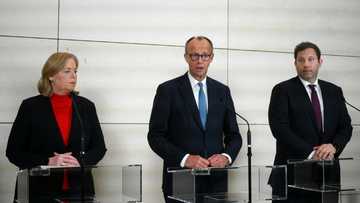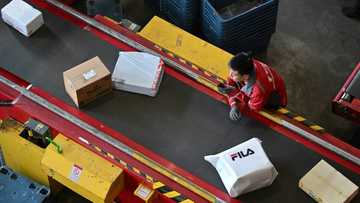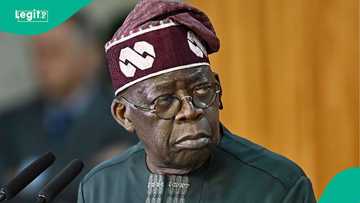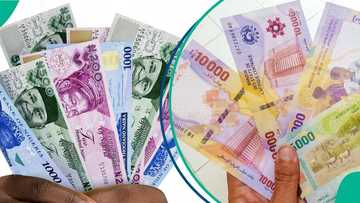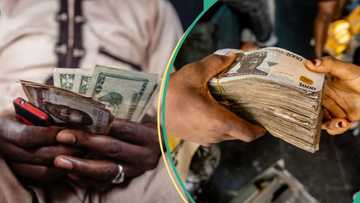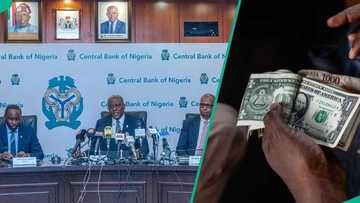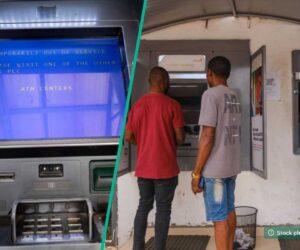Nigeria’s economy faces persistent challenges, including inflation, unemployment, and weak infrastructure. Despite reforms and renewed government promises, the road to recovery still feels tough for many citizens. According to Evans Osabuohien, an economics professor at Covenant University, the country needs a steady power supply and transparent governance to build sustainable growth.
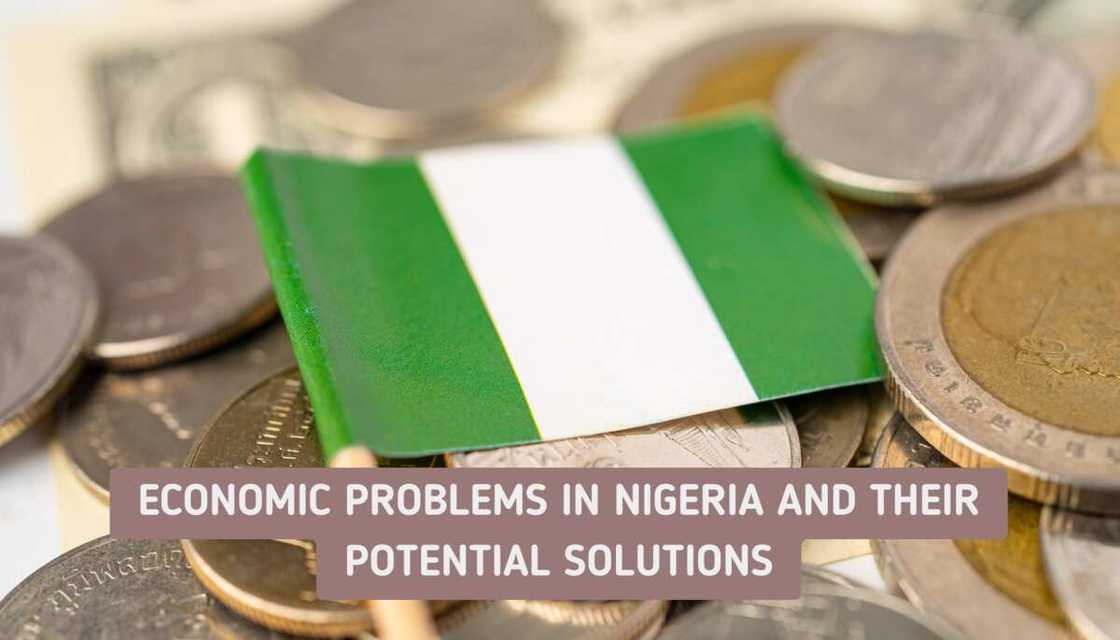
Source: UGC
TABLE OF CONTENTS
Key takeaways
- Corruption and nepotism weaken professional standards in public offices, thus causing a major threat to Nigeria’s development.
- Inadequate healthcare and poor education hinder productivity and economic output.
- Constant changes in regulations cause policy inconsistencies that create uncertainty for businesses.
- Prioritizing both affordable power supply and good roads is the key to kick-starting the economy.
What are the economic problems in Nigeria?
An economic problem means the government tries to satisfy the country’s unlimited wants and needs, but resources are limited. People have endless desires, but the resources to meet those needs are scarce. Below are Nigeria’s economic problems and solutions:

Read also
Awareness Gap Stalls NGX Tech Listings and Blocks Local Exits, TLP Advisory Report Reveals
1. Inflation, debts, and FX crisis

Source: UGC
Despite a modest slowdown, inflation continues to keep food, transport, and basic living expenses painfully high for most households.
Headline inflation eased to16.05% in October 2025, marking the seventh consecutive month of decline. Yet, this moderation offers little relief, as real wages and purchasing power continue to erode due to higher input and logistic costs. Also, Nigeria’s total public debt climbed to ₦149.38 trillion in the first quarter (Q1) of 2025, a 22.38% jump from the previous year (2024).
Meanwhile, the unification of the foreign exchange (FX/forex) market by the Central Bank of Nigeria (CBN) in 2024 was a bold attempt to improve transparency and attract investment. However, the development triggered an initial sharp depreciation of the naira, which crossed ₦1,500 per dollar before stabilising slightly in mid-2025. This move improved forex liquidity but also contributed to higher import-driven inflation.
Possible solutions for inflation, debts, and FX crisis in Nigeria
Inflation is the general increase in the price of goods and services, leading to a decline in purchasing power over time. Here is how the people of Nigeria can overcome inflation, debts, and FX crisis:
- The government should strengthen social protection programmes such as conditional cash transfers and local food-production incentives to support households from rising living costs.
- They should encourage saving through inflation-indexed instruments or diversified funds that preserve value rather than chasing high nominal bank rates.
- Nigeria can resolve the lingering debt burden by approaching the IMF and other lenders in the international capital market with a policy support instrument, debt conversion, and debt restructuring proposals.
- The government should prefer multi-currency or stable-value investments products instead of raw US-dollar hoarding, given tighter rules on dollar deposits and improved forex liquidity.
2. Inadequate power supply

Source: UGC
One of the country’s most persistent economic bottlenecks remains the chronic power shortage, which slows industrial growth, raising production costs, and worsening inflation. Despite ongoing reforms, electricity generation still fluctuates between 3,500 and 5,500 megawatts, serving a population of more than 220 million, a figure insufficient to meet demand.
Although the Nigerian government made progress with the Electricity Act 2023, which fully decentralised power generation and distribution, allowing states and private investors to participate in the electricity market. However, inconsistent regulation, weak transmission infrastructure, and low investment confidence continue to hinder expansion.
How can Nigerians overcome power supply problems?
Below are things the Nigerian government should do to improve the power supply in the country:
- Prioritise upgrading and expanding transmission infrastructure to reduce grid losses and improve reliability.
- Strengthen enforcement of metering policies and reduce electricity theft to ensure revenue recovery and financial sustainability in the power sector.
3. Problems in the communication sector

Source: UGC
The communications and information, and communication technology (ICT) sector is a key growth driver in Nigeria; it contributed 11.18% to gross domestic product (GDP) in the second quarter (Q2) of 2025. Yet, several structural issues still constrain its full potential.
Cybercrime remains a growing threat; the International Criminal Police Organisation (INTERPOL) Africa Cyberthreat Assessment Report shows that cyber-dependent and cyber-enabled crimes now account for a significant share of reported crime in West Africa.
Meanwhile, frequent power disruptions, vandalism of infrastructure, and the widening digital skills gap hamper both service quality and inclusive access. In short, Nigeria’s communication sector is growing fast; however, the benefits are held back by weak infrastructure, security risks, and the inability to fully translate access into productivity.
Possible solutions for communication problems in Nigeria
Below are some ways Nigeria can solve some of the issues in the communications sector:
- The government should fast-track implementation of the national broadband plan and ensure rural areas reach minimum download speeds of 10 megabits per second (Mbps).
- Private sector funding should be mobilised for infrastructure-sharing models to reduce costs and accelerate rollout.
- The government should stabilize the power supply, especially electricity, for people to use ICT infrastructure.
- They should provide more security for ICT infrastructure to reduce vandalism.
4. State-society gap
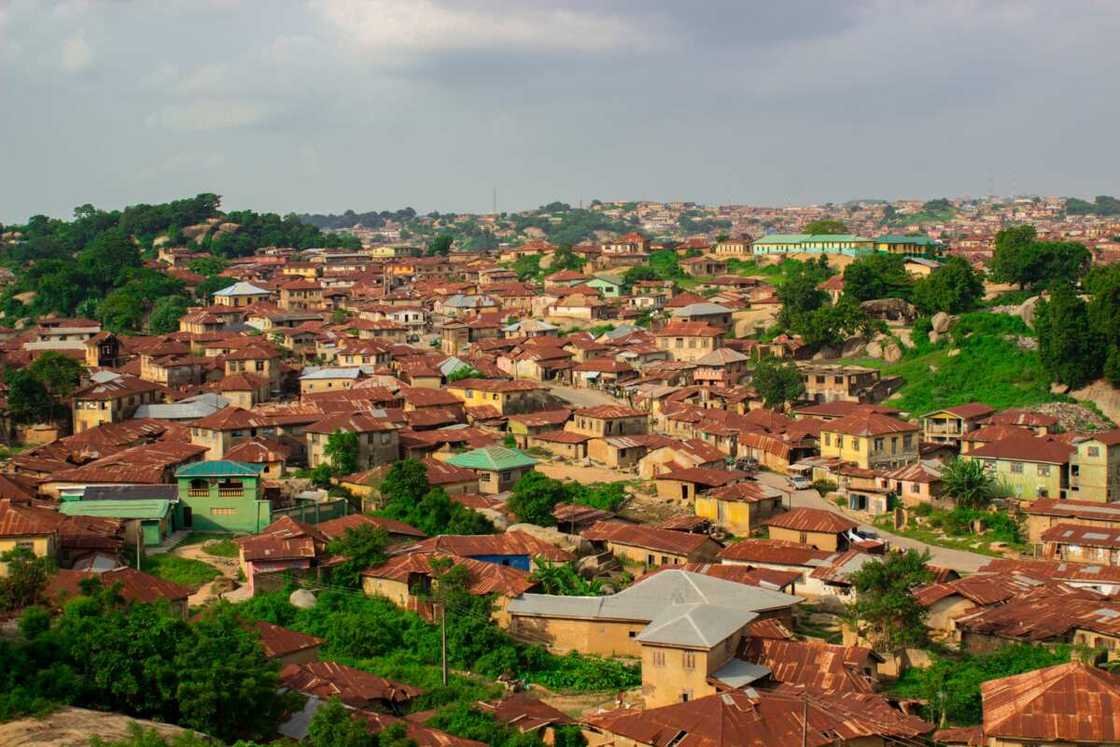
Source: UGC
The state-society gap remains a significant obstacle to Nigeria’s development. Trust in government institutions has weakened, amongst concerns over transparency, slow reform implementation, and limited citizen participation in decision-making.
Although Nigeria has made progress through initiatives such as the Open Government Partnership (OGP), the 2023-2027 National Development Plan, and recent decentralisation reforms allowing states to generate more revenue and manage power sector responsibilities, the disconnect between citizens and the state persists.
Also, weak local institutions, low tax morale, social inequality, and limited accountability mechanisms continue to widen the gap between the Nigerian government and the people.
Possible solutions for the state-society gap in Nigeria
Below are some of the steps the government can take to reduce the state-society gap:
- Reduce foreign financial support and investments. Instead, the government should focus on building local institutions for the country’s development.
- Stop relying on advice from consultants whose focus on the desires and wants of the foreign entities from which they came. Let Nigeria create independent organizations that produce actionable solutions relevant to the people.
- Decentralize governance to reduce the state-society gap. It should also encourage leaders in decentralized governments to promote frequent social feedback.
- Federal and state authorities should expand citizen-engagement platforms such as townhall consultations, digital public-feedback portals, and participatory budgeting, to increase accountability.
- Prioritise fiscal transparency, audit compliance, and open data reforms to rebuild public trust and encourage citizen participation in governance.
5. Corruption
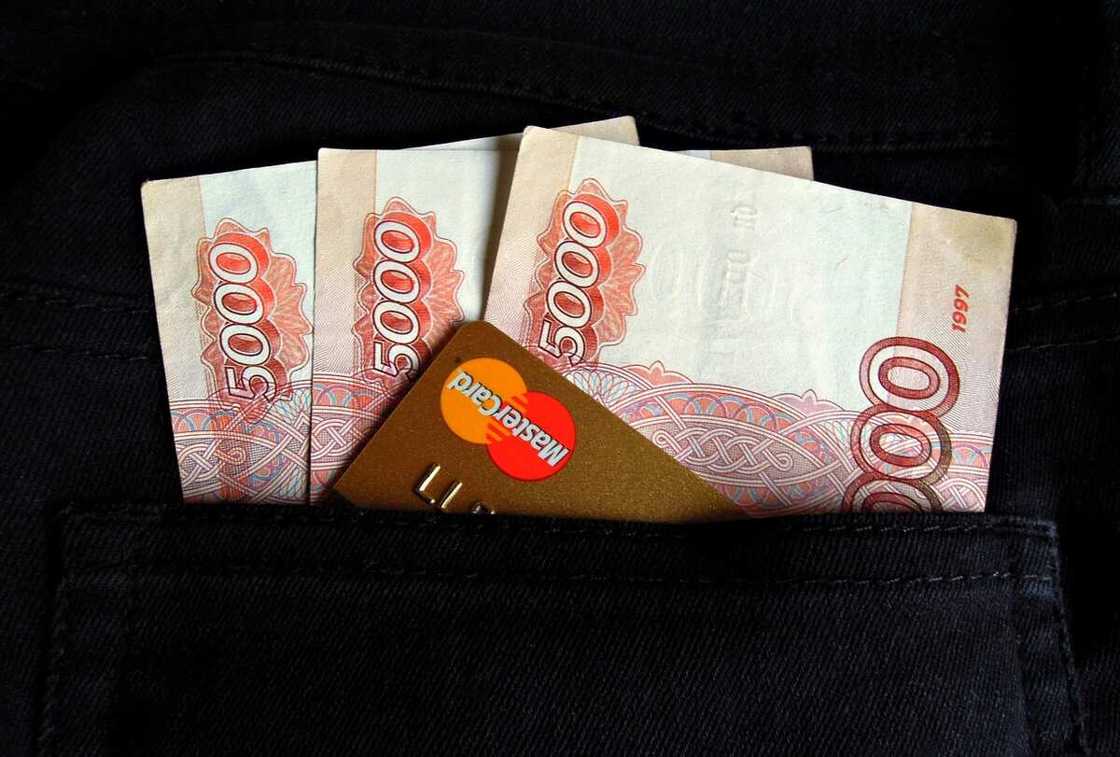
Source: UGC
Corruption remains one of the most persistent constraints on Nigeria’s economic development, weakening public trust, diverting resources, and obstructing service delivery.
According to Transparency International, Nigeria scored 26/100 on its 2024 Corruption Perceptions Index and ranked 140th out of 180 countries, indicating a high level of perceived public-sector corruption.
Recent anti-graft data show that the Economic and Financial Crimes Commission (EFCC) recovered nearly $500 million in 2024 alone, but structural reform remains weak.
Political corruption like nepotism and vote-buying continues to degrade institutional professionalism, while rampant bribery in public services eats away citizen confidence and boosts economic costs.
How can Nigerians deal with corruption?
Nigeria is still battling corruption even though it has over five commissions, bureaus, and tribunals assigned to investigate and prosecute corrupt practices. Here are some possible anti-corruption solutions:
- The government should allow anti-corruption commissions, bureaus, and tribunals to conduct fair investigations into corruption cases without political influence.
- Corrupt leaders and citizens should be punished as per the law and taken away from their wealth obtained by questionable means.
- Citizens and officers who refuse and report bribes should be rewarded.
- The government should promote transparency in public procurement processes and access to information to make government officials more accountable.
6. Inconsistent economic policies
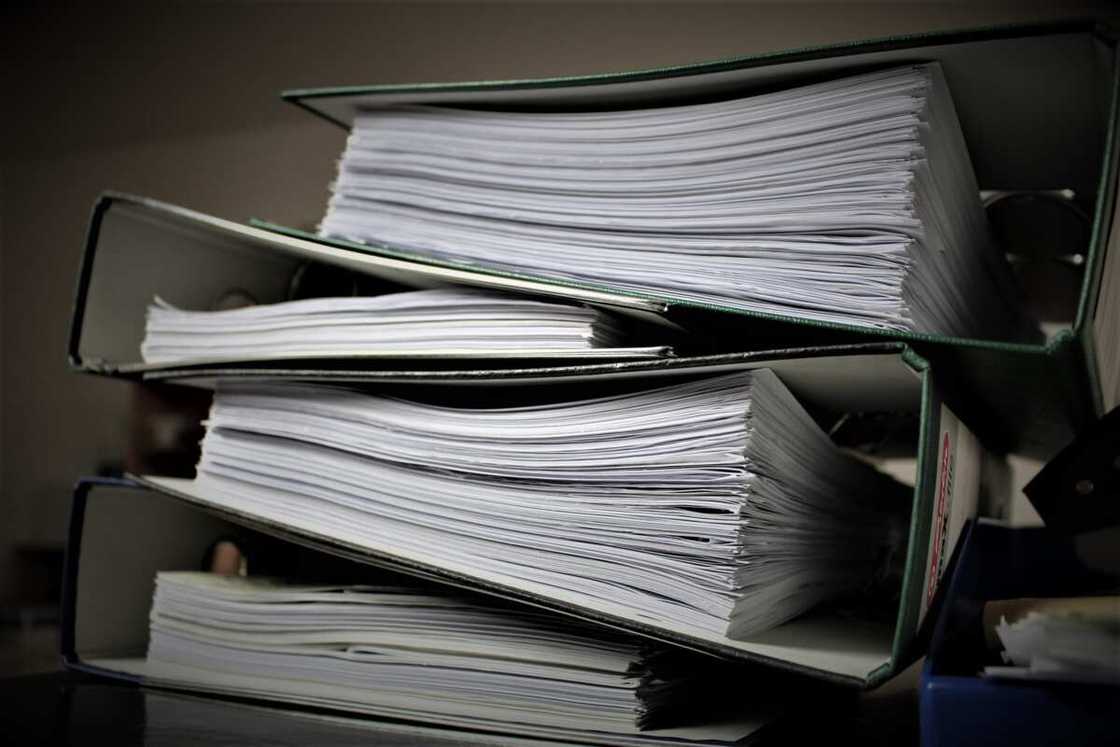
Source: UGC
Economic policies are measures a government uses to manage its country’s economy. They include monetary policy (money supply and demand), budget, taxation, job creation, etc.
Frequent shifts in economic policy and unclear coordination between ministries continue to challenge Nigeria’s growth. A recent budget rollout delay highlighted how poor policy continuity weakens investor confidence and drags reforms.
Without clear institutional structures to ensure that one administration builds on the last, policies deemed optimal yesterday may be abandoned or poorly adapted today, wasting resources and missing windows of opportunity.
Possible solutions for inconsistent economic policies in Nigeria
Here are some possible solutions to inconsistent economic policies in Nigeria:
- Leaders and public workers should stick to the nation’s development plans and priorities and understand the budgeting, implementation, and monitoring processes.
- The government should create transition bodies that ensure the continuity of policies between regimes. These bodies should also enforce policy commitment from the leaders, the administrators, and the citizens.
- Organizations and people the government puts in charge of policy developments should conduct adequate consultations and research.
- The government should look into political and bureaucratic corruption to ensure leaders and organizations do not make and enact policies for personal interests.
- Economic policy changes should not only be accompanied by clear timelines but also by independent oversight and public reporting to reduce uncertainty and strengthen market confidence.
7. Poor human capital development

Source: UGC
Despite Nigeria’s large and youthful population, the country is still under-investing in human capital by global standards. In the 2025 federal budget, only about ₦3.52 trillion (about 7% of its total budget) was allocated to education, far below the United Nations Educational, Scientific and Cultural Organisation (UNESCO) benchmark of 15-20% for developing countries.
A recent study found that inadequate spending, weak implementation of skills-training programmes, and a persistent gap between education outcomes and labour market needs continue to hold back productivity and poverty reduction in Nigeria.
Without stronger investment in education, health and skills development, Nigeria risks missing its potential for a knowledge-based economy.
Possible solutions for poor human capital development in Nigeria
Here are some of the measures that can help alleviate poor human capital development in Nigeria:
- Nigeria should increase budgetary allocation to the education sector to boost human capital skills that drive a knowledge-based economy.
- The government should establish agencies that can improve the skills and capabilities of students across all educational levels in the country. For example, students need internships and mentors to practice the theory they learn in class.
- The Bank of Industry, Ministry of Labour, and other government agencies should promote continuous training and re-training of workers to improve their skills.
- The government should subsidize learning to make it affordable to everyone in Nigeria.
- Human-capital investment programmes should be linked with outcome measurement, tracking student performance, job placement, and return on investment metrics.
8. The nature of the Nigerian market

Source: UGC
Nigeria’s business environment continued to be shaped by heavy regulation, high operational costs, and structural bottlenecks. Non-oil exports grew by 24.8% in Q1 2025, but exporters still face high exchange rate instability, multiple overlapping levies, and weak trade logistics.
The Nigerian Economic Summit Group-Stanbic IBTC Business Confidence Monitor shows that limited access to finance, unclear policies, and high cost of doing business remain among the top constraints cited by firms.
Possible solutions for problems in the Nigerian business market
Here are some of the things the government does and some recommended solutions for problems in the business market in Nigeria:
- Support private enterprises by easing access to finances/loans, linking them to international markets and partners, and more to stimulate exports.
- Promote private businesses to reduce monopoly in setting prices for products and services. A healthy business competition between private and public organizations improves the economy.
- Publish clear and stable policy signals, reduce regulatory overlaps, and provide one-stop regulatory portals to ease the cost of doing business.
- Customs and trade logistics bottlenecks should be addressed through smooth procedures, reduced levies, and improved seaport/airport infrastructure.
9. Crime and terrorism

Source: UGC
Crime and terrorism continue to significantly get in the way of Nigeria’s economic growth and social stability. According to travel-advisory data, the risk of terrorist attack and kidnapping remains high across multiple Nigerian states.
The cost to the economy is extreme: agricultural output, trade routes, investment flows, and public confidence are all affected by recurring security shocks.
Possible solutions for crime and terrorism in Nigeria
Below are things the government is doing to impede crime and terrorism in the country and more suggestions of things it should do:
- Encourage the public to report criminal activities and suspicious people.
- Cut channels terrorists use to get weapons and finances.
- Create employment to stop the youth from committing crimes to get money for basic needs.
- Strengthen intelligence-led policing and community-based early-warning systems to detect and disrupt terrorist networks before attacks occur.
- Victims of terrorism and banditry should be supported through rehabilitation programmes, compensation schemes, and infrastructure rebuilding in affected communities to restore trust and livelihoods.
10. Unemployment

Source: UGC
Unemployment remains a major drag on Nigeria’s economic growth and social well-being. Although official records show the national unemployment rate at 4.3% in mid-2024, analysts warn this figure masks under-employment and informal work, which dominate the labour market.
Youths continue to face extremely high joblessness, with the International Labour Organization (ILO) reporting youth employment at 6.5% while informal employment accounts for 93% of all jobs.
How can Nigeria deal with unemployment?
There are many ways the government can deal with the employment issue. Here are some possible solutions:
- Increase and facilitate technical training institutions. In most countries, the demand for hands-on skills outdoes the supply. Government can encourage young people to study technical courses.
- Deal with corruption to protect public funds that can be used in investments to create jobs.
- Facilitate self-employment through funding and the creation of markets for products and services.
- Facilitate the export of human capital to get skilled and educated Nigerians work opportunities abroad.
11. Ethnical and religious differences

Source: UGC
Nigeria has more than 250 ethnic groups and a near-even split between Christians and Muslims; tensions often flare around identity, land use, politics, and historical grievances. The Boko Haram and Islamic State – West Africa Province (ISWAP) attacks in northeast Nigeria have caused thousands of deaths and billions of naira in economic losses.
Persistent distrust between ethnic and religious groups weakens national unity and governance, affects elections, and disrupts trade and mobility. Also, localised violence continued to wear down social capital and establish stereotypes that fuel future conflict.
Possible solutions for ethnicity and religious differences in Nigeria
The government of Nigeria can do the following things to end ethnicity and religious differences in the country:
- Promote inter-faith and inter-ethnic dialogue through community peace forums, cultural exchanges, and state-supported mediation platforms.
- Ban religious and traditional activities that stir violence among citizens.
- Enact laws to punish anyone encouraging a particular religious or ethnic group to attack the other.
12. Poor health system

Source: UGC
Nigeria’s healthcare system still struggles with underfunding, poor infrastructure, uneven access, and a shrinking health workforce. The United Nations Children’s Fund (UNICEF) reports persistent rates of malnutrition, unsafe water, and poor sanitation, which continue to drive preventable diseases among children and adults in the country.
Also, corruption in the health sector has increased the circulation of fake medicine and substandard hospital infrastructure.
Possible solutions for Nigeria’s poor health system
The government of Nigeria can improve healthcare. Here are some recommended solutions it can use:
- Increase funds allocated to the health sector.
- Invest in medical insurance to lower the cost of medical services.
- Provide subsidies to private healthcare centers.
- Give hospitals standard healthcare facilities and infrastructure.
- Invest in tertiary healthcare education to increase the number of medical professionals.
13. Poor transport infrastructure

Source: UGC
Nigeria still has inaccessible roads due to several issues, including insecurity, funding gaps, poor maintenance, and climate-related damage. Congestion at major ports such as Apapa, inadequate rail coverage, unsafe roads, and limited inter-state connectivity continue to inflate logistics costs.

Read also
Nigeria’s naira wobbles as FG secures $2.35 billion eurobond after massive 400% oversubscription
Possible solutions for poor transport infrastructure in Nigeria
A lot can be done to improve Nigeria’s transport sector. Here are some solutions the government has undertaken and things it should do to improve transport in Nigeria:
- Build toll roads to generate more revenue.
- Expand roads to reduce traffic.
- Expand the Road Infrastructure Tax Credit Scheme (RITCS) to attract more private sector funding for federal highways.
- Accelerate port expansion public-private partnerships (PPPs) like the Badagry Deep Sea Port to decongest Apapa and improve maritime logistics.
- Upgrade major airports and key regional airstrips to enhance connectivity, boost domestic tourism, and facilitate business travel.
- In terms of road security, the introduction of CCTV cameras is necessary.
- The railway network should be rehabilitated and modernised, with priority given to reducing pressure on roads.
Expert tips on the Nigerian economy
To better understand the true roots of the economic crisis in the country as well as the most urgent solutions, Evans Osabuohien, a professor of economics at Covenant University, provides a clear-eyed assessment of the sectors most affected, the true impact of the unemployment rate and government policies, and the fundamental steps required to build a stronger, more inclusive economy.
Sector resilience: manufacturing still struggles, services hold steady
Looking at which parts of the Nigerian economy are surviving, Professor Osabuohien explains that while the service sector has shown some resilience, manufacturing continues to face tougher headwinds. He said:
We’ve seen the service sector thrive a little bit, but in terms of degree of impact, the manufacturing sector has been much more adversely affected compared to other sectors of the economy.
Nigeria’s biggest ticking bombs: unemployment and underemployment
While Nigeria’s economic issues are “multifaceted,” Professor Osabuohien said joblessness remains particularly troublesome due to its severe ripple effects:
- The unemployment crisis: The problem is critical, especially with the high rate of graduate unemployment. The economic expert said:
People who have spent some time and their resources, even from their parents, to get trained in high institutions, and they come out without a job or working in what they call underemployment.
- A youth problem: This challenge is amplified by Nigeria’s youth unemployment. With a “median age less than 20 years and over 70% of the population under 30 years”, a vast, resourceful demographic is being left unemployed.
Professor Osabuohien warns that such a resourceful but idle population poses not just an economic challenge but also psychological trauma and other social risks.
Policy paradox: good intentions, mixed outcomes
In recent years, several government policies, such as tax expansion and cashless policy, were meant to stabilize the economy; however, the expert warns that many of these policies, although well-intentioned, have unintended ripple effects, especially for low-income earners. He explains:
- Electronic transfer fee trap: Efforts to increase the revenue base of the government, such as the electronic transfer fee, are having an unexpected adverse impact. This fee “is further exacerbating economic challenges that this vulnerable group in this context, the unemployed or the underemployed, faces.”
- Increased cost of doing business: While digital payments have grown since the cashless policy and currency redesign, the charges increase the overall cost of transactions for everyone, including those in the informal sector who are simply trying to make ends meet. This has created a dilemma where “people are now considering whether they should go using cash or continue with the electronic transfer because of the small charges,” a ripple effect that challenges the digital push.
True game changer: infrastructure over palliatives
Professor Osabuohien firmly believes that continued focus on temporary measures is akin to “treating the symptoms instead of the problem.” He argues that Nigeria must focus urgently on stable power and efficient transport systems, which both hold the real key to growth:
Even the so-called palliative package can just be put in to get Nigerians’ power supply. It may not be 24 hours, maybe an 18-hour affordable power supply; the ripple effect will be so far-reaching that the economy will be almost like self-starting because each person can now produce, and they can also earn income. So, for the income Nigerians earn, the government can begin to get revenue from what they are earning from taxes, so to speak.
Although it has been said several times, we can’t help but keep saying it: if Nigerians can have a power supply and have good roads. If just this infrastructure could be put in place, we could see a lot of economic impact from economic activities that will lead to productivity.
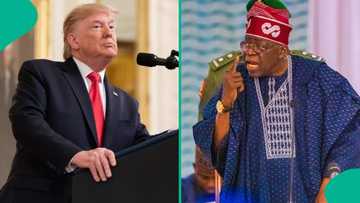
Read also
Economic implications of being Country of Particular Concern for Nigerians, analysts speak
And this one has a further positive impact because the transport cost will go down, and that will also have an impact on food inflation and the issue of food security. So this is what drives the fundamental process for infrastructure production.
And when traveling, you will see many eateries emerging and see many centres emerging, so these are services, but what are you servicing if you’re not producing the things that will give back to what you call the backward and forward linkage effect?
And it doesn’t cost us much to get. Once we have a government that is so interested in that particular area, it will just be kick-starting.
The way forward in fixing the Nigerian economy
Professor Osabuohien emphasizes that transparency and public-private-people partnerships (PPPPs) can unlock massive local and diaspora investment. He explained:
Nigerians at home and abroad are willing to contribute to the process if they see a transparent process. We’ve seen Nigerians owning mega investments (even an airport) outside the country. You ask yourself why they are not doing that at home, because they don’t see a transparent and secure process.
Once there’s a transparent process, people can see that there’s a structure in place. Nigerians at home and abroad can even invest in the process, hoping that they will also be part of the reaping of the dividend.
He added that such an investment will have a profound multiplier effect across the entire economy, boosting production, manufacturing, job creation, and ultimately stabilizing prices.

Source: UGC
What are the problems of economic development in Nigeria?
There are many problems hindering Nigeria from realizing its full potential in economic growth and development. Some of the major economic problems in this country are:
- Inflation, debts, and FX crisis
- Inadequate power supply
- Problems in the communication sector
- State-society gap
- Corruption
- Inconsistent economic policies
- Poor human capital development
- The nature of the Nigerian market
- Crime and terrorism
- Unemployment
- Ethnicity and religious differences
- Poor health system
- Poor transport infrastructure
Which are the largest economic problems in Nigeria?
Nigeria’s most notable economic issues are corruption, poor education, inadequate healthcare, and unemployment.
How can corruption in Nigeria be curbed?
Some possible solutions to economic problems in Nigeria include incentivizing the general population to report corruption cases, strengthening anti-corruption bodies, and promoting transparency.
What is Nigeria’s current GDP?
Nigeria’s GDP as at 2024, rose to ₦372.8 trillion from ₦314.02 trillion the previous year.

Read also
60 million Nigerians spend $5.5m daily on gambling, SEC raises alarm on fading investment culture
Economic problems in Nigeria are extensive. The governments and the people could have solved most of these problems, but corruption is dragging them behind.
Legit.ng explained the causes of insecurity in Nigeria. Insecurity slows down Nigeria’s growth and development. It is pretty challenging for the public and the government to get a lasting solution to this problem.
Attacks and threats happen in the country almost every month. Nigeria’s primary sources of insecurity are tribal conflict, poverty, diseases, bad governance and human rights abuses, and environmental degradation.
Source: Legit.ng

